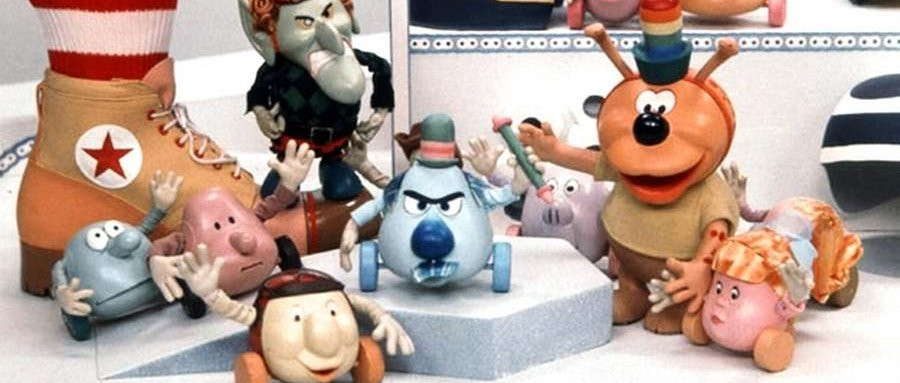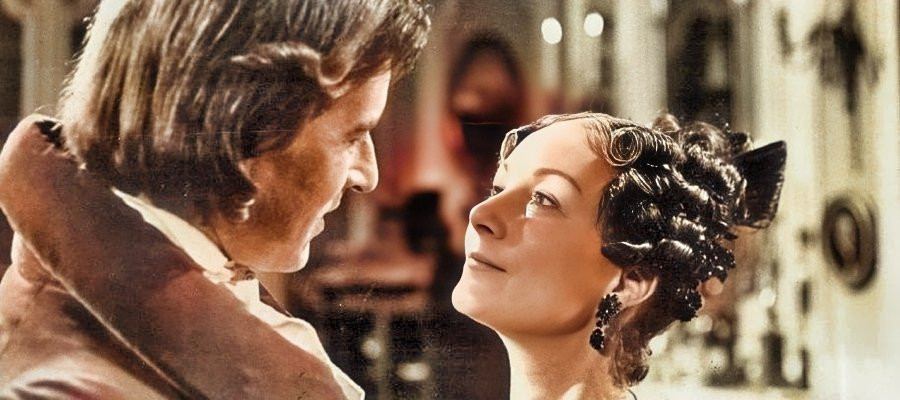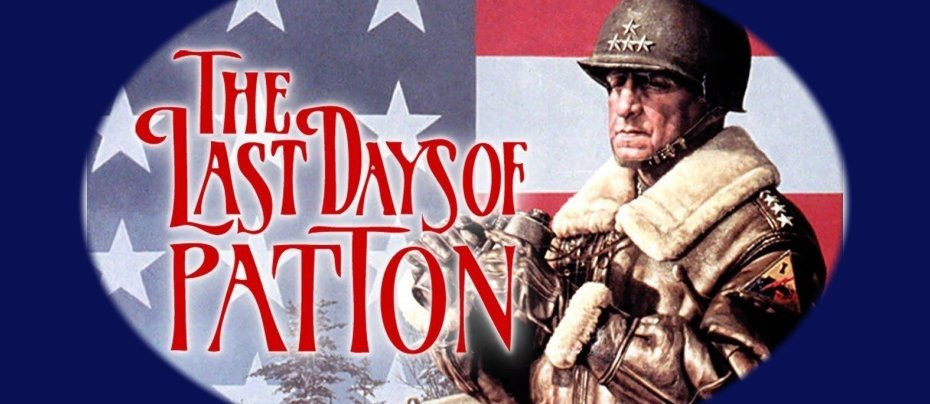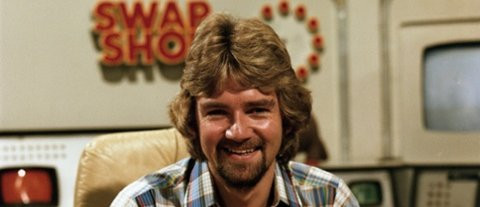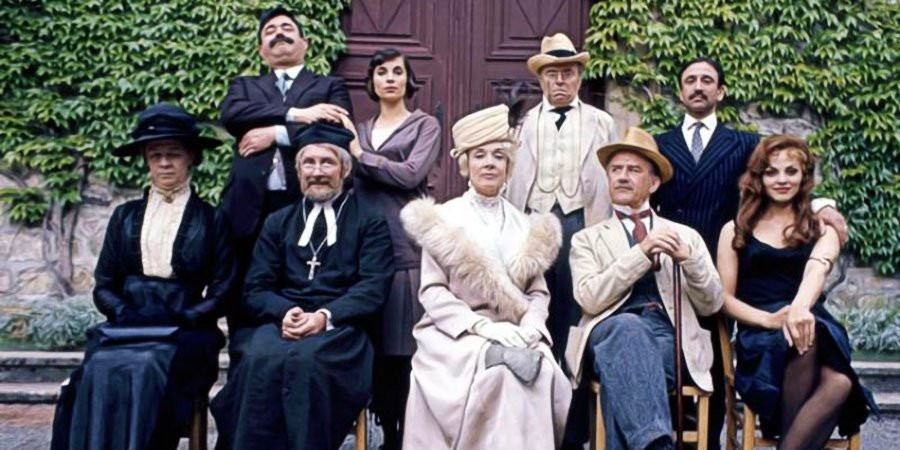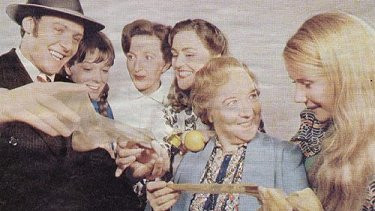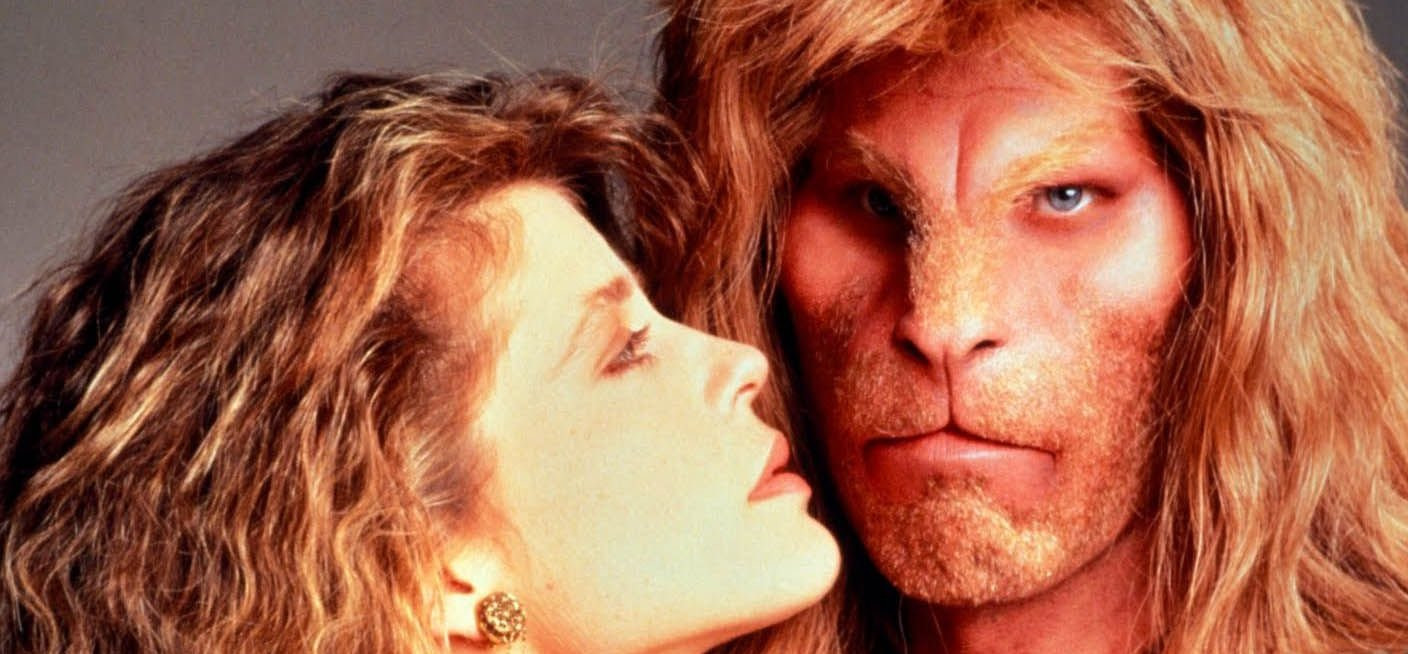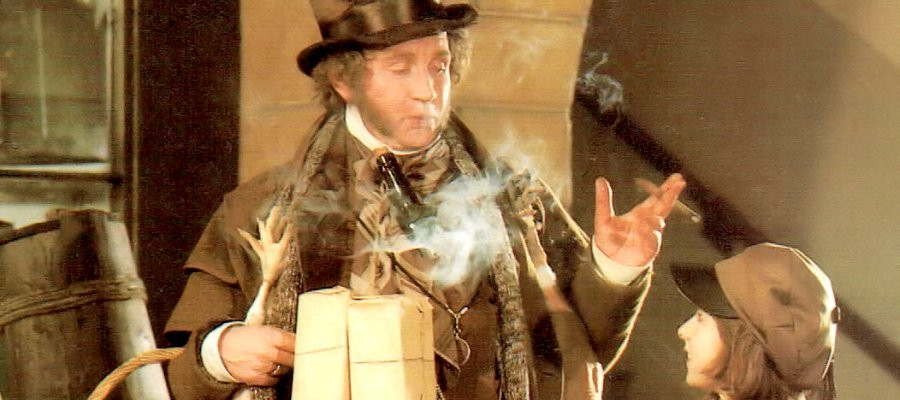
Dickens of London
1976 - United KingdomThe excellent scriptwriter Wolf Mankowitz has surpassed himself in Dickens of London, a miniseries recounting the life of Charles Dickens from early boyhood till his death.
One of the clichés of biographical drama is the tendency to tell the story in flashback, with the central figure looking back on his or her life from the vantage of old age ... or even narrating from beyond the grave. There is a sound practical reason for this particular device: the actor or actress cast in the central role is usually too old to portray the biographical subject in early youth. So, we start out with a scene depicting the character in middle age or older, to get the audience accepting that James Cagney is really George M. Cohan, or Julie Andrews is really Gertrude Lawrence. Once that linkage is made, the flashback can begin.
Each episode of Dickens of London is a separate flashback, with the same framing device every time. We see Roy Dotrice, pale and drawn, as Dickens lying in his deathbed. In real life, Dickens's death was precipitated by his exertions during a stage tour, in which he strenuously acted out the murder of Nancy Sikes in 'Oliver Twist'. As Dickens languishes in bed, he speaks to Mr. Dolby, the manager of his final tour, prompting memories of earlier phases in Dickens's life. (Cue the flashback.) There are occasional interruptions, as when Dickens is visited by a masked intruder, claiming to be the original of Dickens's creation Mr Pickwick, and demanding compensation.
Wolf Mankowitz's research is impeccable, and this series is extremely accurate, but inevitably there is some invention and fictionalising. Charles Dickens stated that the character of Wilkins Micawber in 'David Copperfield' was inspired by his own father John Dickens, a failed civil servant who went to debtors' prison during Charles's childhood. Here, we see John Dickens speaking epigrams that will eventually become dialogue spoken by Micawber in Charles Dickens's novel. I seriously doubt that such material was actually handed to Dickens in a manner like this, but it's very entertaining.

Regrettably, but perhaps out of necessity, the central role of Charles Dickens is played by three different actors: a boy in the first episode, when young Charles is forced to work in a blacking factory so that his pampered sister can have dancing lessons. Gene Foad is a dullish Charles in the next two episodes, when Dickens as a stagestruck young man endeavours to become a playwright and actor. Roy Dotrice plays Charles Dickens (very well) for most of the series, ageing as the episodes progress.
Dotrice also plays Dickens's impecunious father John, and there are some unintentionally bizarre moments in the fourth episode when Roy Dotrice plays long sequences opposite himself, portraying father and son in long dialogue scenes! Possibly for budgetary reasons, this production does not plump for double-exposure, so the camera must dizzyingly cut back and forth between two separate Roy Dotrices, never getting them both in the same shot.
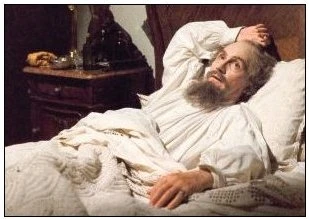
Diana Coupland is excellent as Charles Dickens's mother, but I'm so used to seeing her as Jean Abbott that I kept expecting her to shout 'Sid!'. The supporting cast are excellent as well, including Ben Kingsley pre-Oscar. Dickens of London is probably the best - most entertaining and most accurate - dramatisation of Charles Dickens's life that will ever be made. Inevitably, some important things have been left out ... such as Dickens's long relationship with his mistress, who once helped him tend to the wounded when they were caught in a railway accident. (Dickens died five years after the accident, to the very day: perhaps the memories had a long-term traumatic effect on him.) Despite some flaws, I'll rate Dickens of London a full 10 out of 10.
Seen this show? How do you rate it?
Seen this show? How do you rate it?
Published on December 7th, 2018. Review: F. Gwynplaine MacIntyre.


